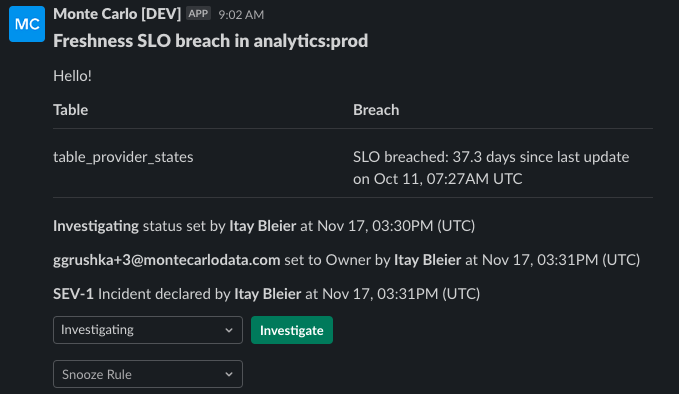
It's now easier to track the progression of an alert to a true Incident. If you update the Severity or Owner of an Incident inside Monte Carlo, those updates now get shown on the corresponding alert in Slack.

It's now easier to track the progression of an alert to a true Incident. If you update the Severity or Owner of an Incident inside Monte Carlo, those updates now get shown on the corresponding alert in Slack.
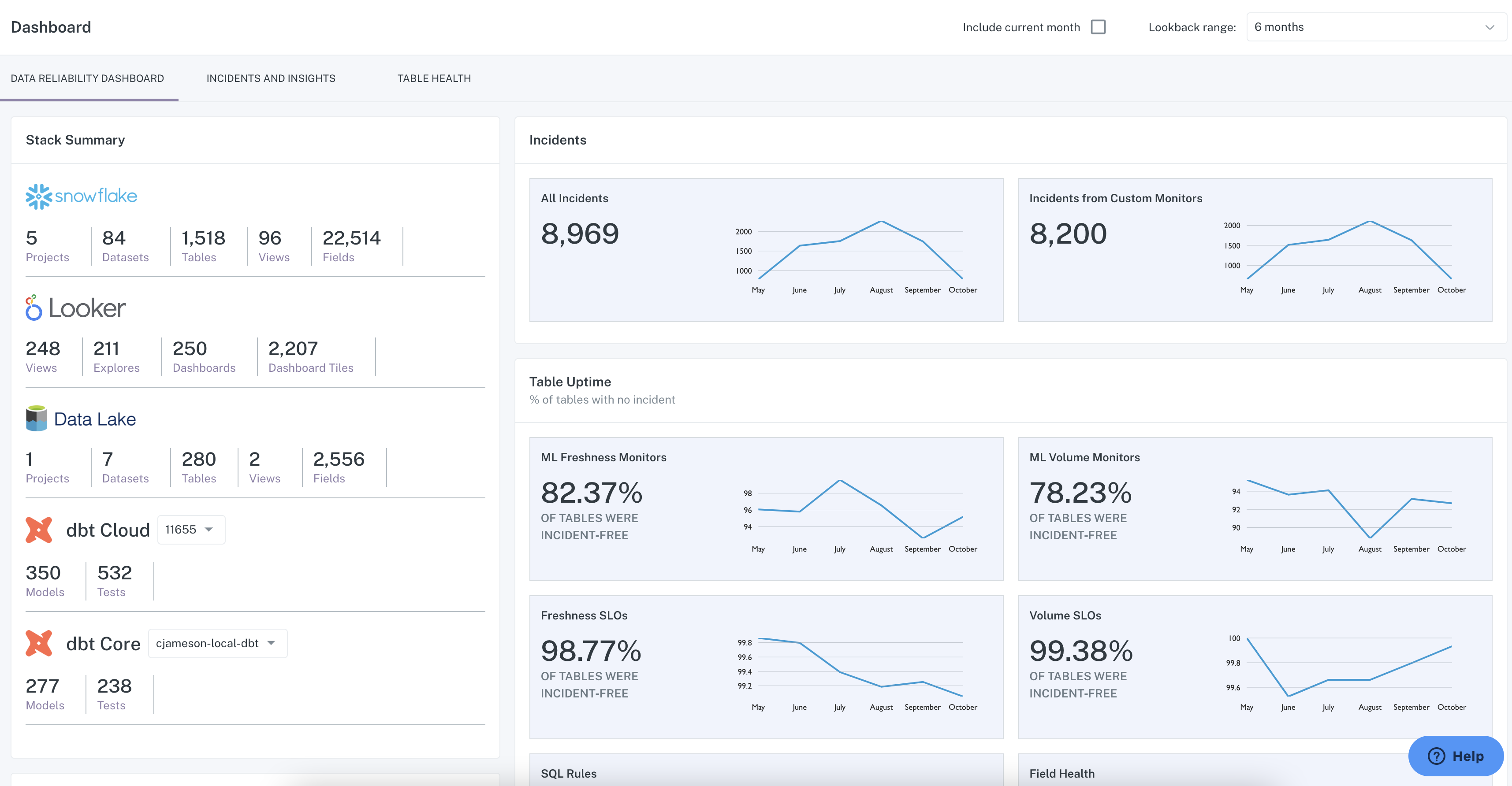
Contains key metrics about your stack, incidents, incident response, user adoption, and uptime, this manager overview helps you manage and track goals around data observability and change management. It also helps break many of these metrics out by Domain, so you can see which Domains are high performers and which may be struggling.
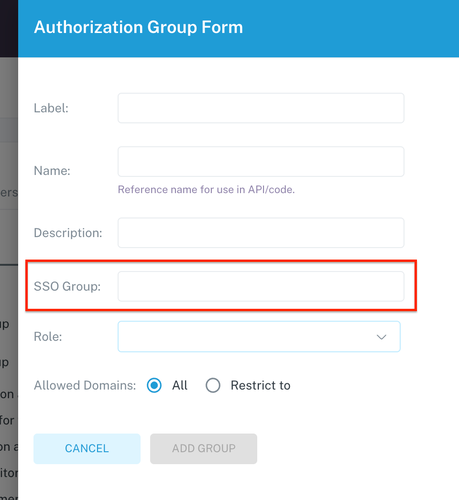
If you're looking to manage Monte Carlo permissions and access to Domains via SSO, this is now possible with SSO Group to Authorization Group mapping. This relieves a lot of the administrative burden from organizations with a large user footprint or stringent access control policies. This is currently supported for Okta and AzureAD.
For more comprehensive details, check out the docs for Mapping SSO Groups to Authorization Groups.
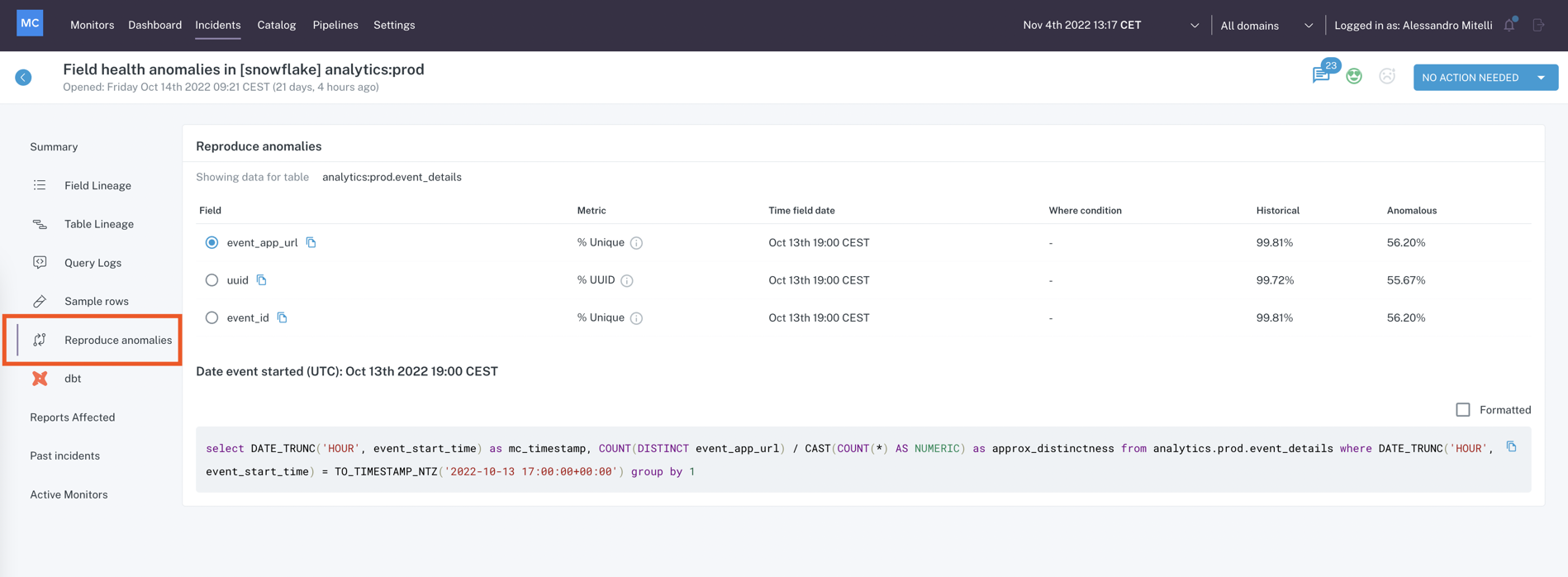
We changed both sample and reproduce features from embedded buttons on incident cards to independent tabs in Incident IQ. These are available for field health and dimension tracking incidents.
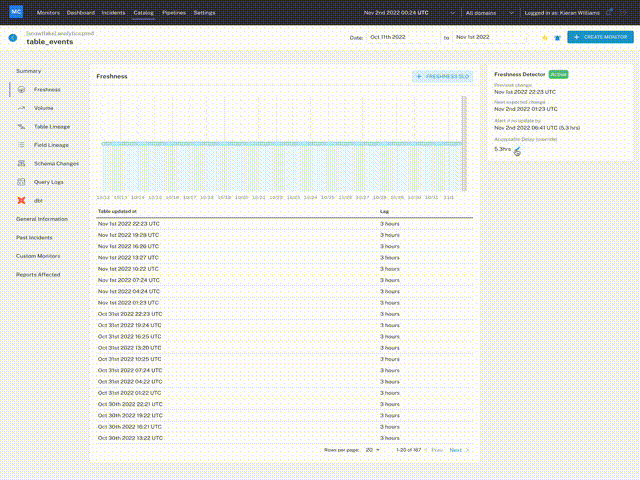
We've added a slider for the Freshness and Unchanged Size model on the Freshness and Volume pages of the catalog. This allows you to extend the acceptable delay to up to 72 hours for tables which you don't want to be alerted on as frequently.
A new version of the CLI (v0.31.0) is released where each of the toggle-*-events commands is replaced with a pair of configure-*-events and disable-*-events commands. Having enabling vs disabling as their own CLI commands will make such commands more clear to users.
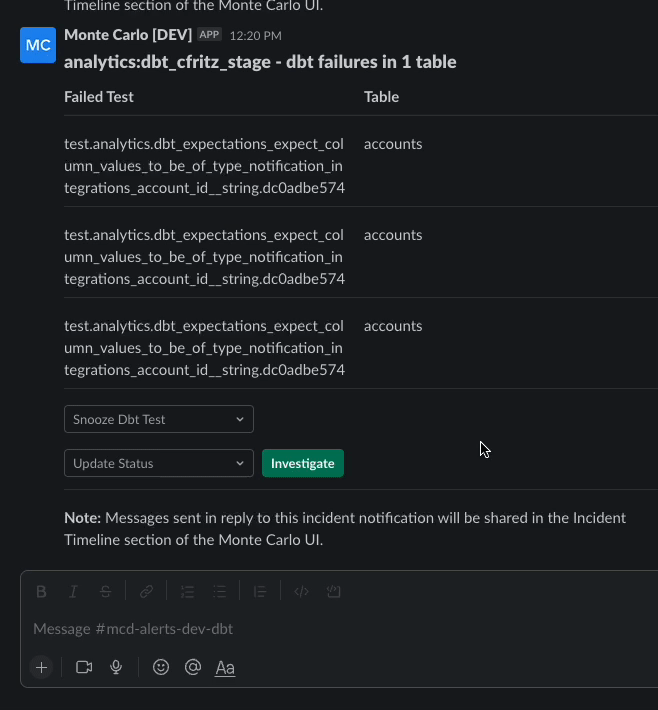 .
.
Users can now snooze dbt model errors or test failures from Slack. Once snoozed, such events will not trigger additional notifications for the selected time period (12 hours, 1 day, 2 days, 3 days, or 1 week).

Users can now hover over any lineage node and see a summary tooltip showing the node's name, type, row count, and last update time. This will make it even easier for users to use lineage for troubleshooting.

To streamline the creation of monitors, we now auto-generate names based on selected tables and fields.
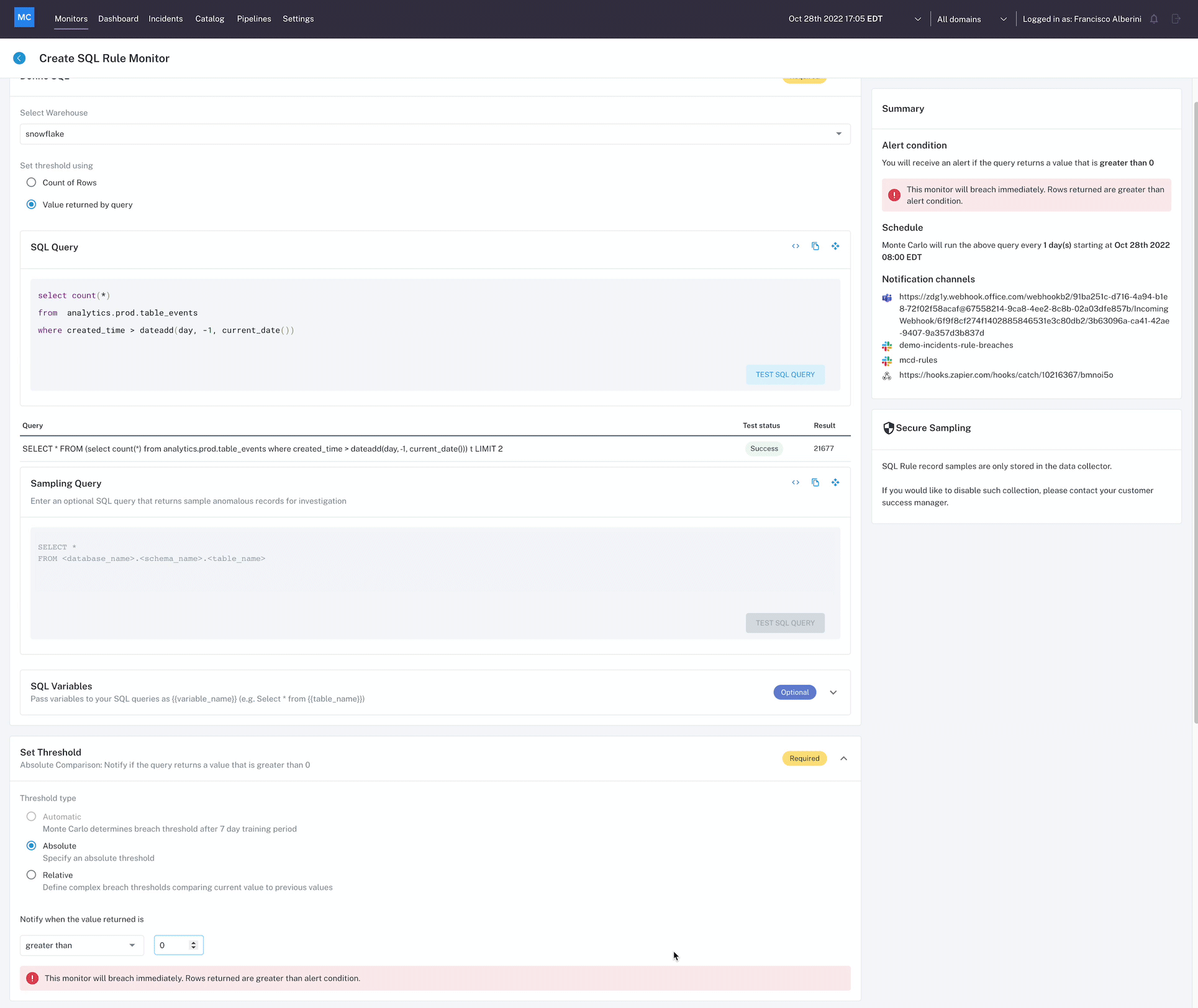
To help you better configure monitors, we added in-line validation to show when defined thresholds are configured to immediately start breaching. This validation is currently supported in SQL Rules and Freshness SLOs.